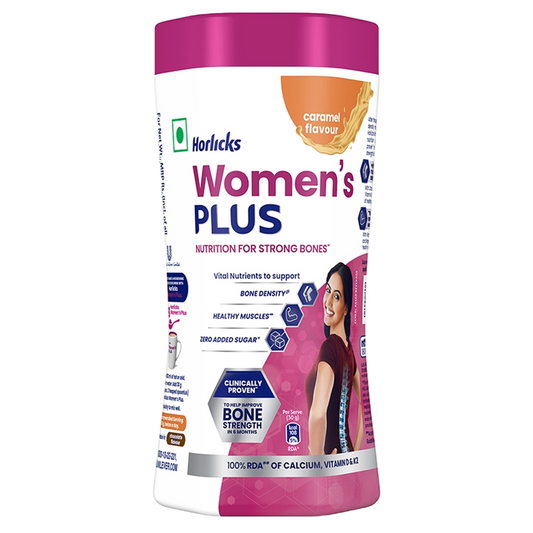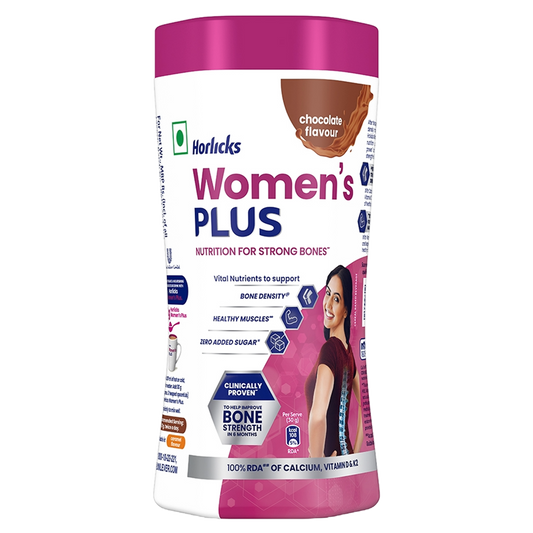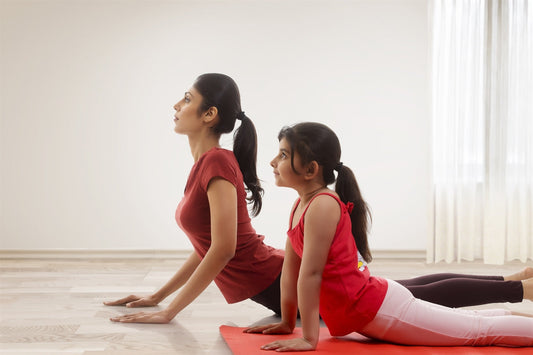Did you know that women are at a higher risk of developing brittle bones compared to men?1
There are a variety of reasons for this. For instance, women's bones are usually smaller and thinner than men. Furthermore, bone loss may occur as a result of pregnancy and breastfeeding. However, bone mass lost during pregnancy and breastfeeding can be replenished within a few months of delivery and weaning.
The rapid decrease in estrogen levels during and after menopause can cause severe bone loss, raising the risk of brittle bones as you get older2.

Bone Health Is Important.
Brittle bones and osteoporosis were thought to be an unavoidable part of ageing. However, growing evidence on the importance of bone health indicates that consuming food for healthy bones and keeping an active lifestyle can help in increasing your bone density. The effect of bone loss caused by menopause can be minimized if your bones are healthy, to begin with.
It is never too early or too late to begin caring for your bones. Exercises involving weight training or high-impact cardio workouts such as cycling, athletics, aerobics etc., and a diet high in calcium and Vitamin D will help you maintain your bone strength and prevent menopausal bone loss3.
Diet And Supplements To The Rescue.
1. Milk And Milk Products4
Milk and milk products like paneer, curd, cheese, and buttermilk are high in calcium, which helps in strengthening bones. Regular consumption of plain yoghurt or a cup of milk is an excellent way to increase your protein and Calcium intake.
You can also consider supplementing your diet with a cup of nourishing beverage like Horlicks Women's Plus.
Its advanced CALSEAL formula, specifically designed for women, contains 100 percent of the daily requirement of calcium, Vitamin D, and K2#. These three essential nutrients help maintain bone health. Vitamin D helps with calcium absorption, and K2 helps for binding calcium to bones. Horlicks Women's Plus is available in delicious caramel and chocolate variants.
2. Soy Milk And Tofu
Soy milk and tofu are nutritional powerhouses in your diet. They are a rich source of protein, calcium, and other bone-building nutrients.
3. Eat Your Greens
It is important to include green leafy vegetables in your diet regularly. They are brimming with vital nutrients, essential for bone health such as calcium. Try to include a variety of greens in your diet such as spinach, amaranth, fenugreek, mustard greens, cowpea leaves, moringa leaves, etc., in various forms to your meals.
4. Fresh Vegetables
Other fresh vegetables such as broccoli, ladyfingers, cabbage, tomatoes, plantains, coloured bell peppers, etc., are also rich in calcium, Vitamins C & K, magnesium, and potassium.
Copy
5. Whole Grains And Cereals5,6,7
Avoid ultra-refined food in the form of white bread, crackers, and pasta. Replace them with wholegrain variants such as multigrain bread, wholewheat pasta, and digestive crackers. Incorporate whole grains and cereals such as ragi, buckwheat, millets, oatmeal, etc., into your daily diet for calcium-packed meals.
6. Sprouts
Moong, matki, Kala chana, masoor, horse gram, and other sprout pulses are high in calcium, protein, magnesium, phosphorus, and Vitamin K. They're also full of fibre and simple to digest. You may eat these as a mid-meal snack or toss them into salads for a boost of nutrition and flavour8.
7. Nuts, Seeds, And Dried Fruits
Nuts and seeds such as almonds, walnuts, peanuts, sesame seeds, chia seeds, flax seeds, etc., are amazing calcium, magnesium, potassium, and zinc sources. These nutrients are also abundant in dried fruits like figs (anjeer) and raisins. Simply soak a handful of nuts, seeds, and dried fruits overnight and eat them the next morning.

8. Potatoes And Sweet Potatoes9,10
Magnesium keeps your Vitamin D levels in check, and potassium neutralizes the effect of acids that can lead to calcium wastage in your body. Potatoes and sweet potatoes are great sources of both potassium and magnesium.
9. Citrus Fruits
Citrus fruits such as oranges, sweet limes, passion fruits, amla, kiwi, etc., are packed with Vitamin C that aids collagen synthesis. Collagen is one of your bones’ key constituents and supplementing your diet with enough Vitamin C is a great way to ensure good bone health.
10. Fatty Fish
Fatty fish such as herring, mackerel, and salmon offer a wide range of bone-building nutrients such as Vitamin D and omega 3 fatty acids.
You Should Also
Avoid salty foods11 - Eating salty foods that are high in sodium can cause your bones to lose calcium. To limit your sodium intake, limit your consumption of processed and packaged foods such as chips, canned food, fast food, etc.
Quit smoking12 - If you needed one more reason to avoid smoking, it is this – smoking reduces your bone mass, leading to brittle bones over time that is prone to fractures.
Avoid excess alcohol13 - A few drinks here and there are okay. However, excess alcohol consumption has been linked to a higher risk of developing osteoporosis.
Exercise14 - Even on the days when you don’t feel like it. Consistent physical activity such as weight training, walking, running, and jogging can help in maintaining optimum bone health. Practising yoga can help in improving your flexibility and strengthening your muscles. It improves your balance and reduces the risk of falls, ultimately reducing the risk of fall-related fractures in the long run.
Sun exposure15 - Your body needs Vitamin D for effective calcium synthesis – both key nutrients for bone health. Exposure to the morning sun can aid Vitamin D production in the body, effectively improving calcium absorption by your bones.
Bone Density Scans - It is important to prioritize and monitor your bone health. Routine bone density scans can enable you to take measures to improve or maintain your bone health – irrespective of your age.









